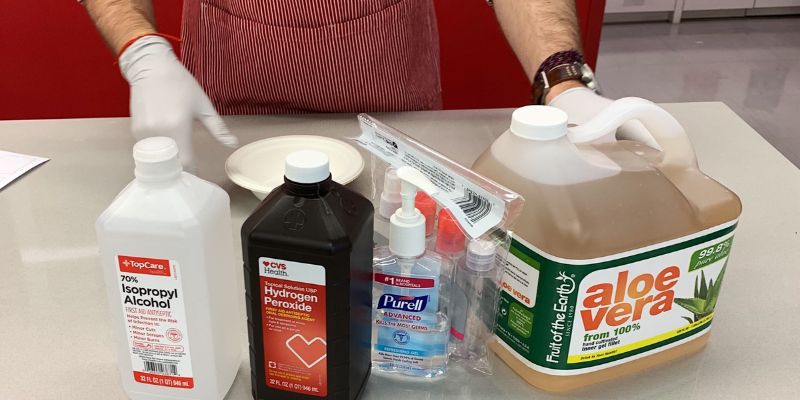Inflammation is the process by which your white blood cells and the substances they produce defend you against infection by outside pathogens like bacteria and viruses. Nevertheless, in disorders like arthritis, your immune system causes inflammation even when there are no outside intruders to fight off. Autoimmune illnesses occur when the immune system mistakenly attacks healthy tissues, believing them sick or abnormal.
Different Forms of Inflammation
Acute inflammation is the body's reaction to abrupt injuries, like a cut finger. Your body immediately begins to repair the incision by dispatching inflammatory cells to the area. The healing process begins with these cells.

The body's inflammatory response is chronic if it persists without a clear external threat. Joints can be severely damaged, with pain and deformity, in autoimmune diseases like rheumatoid arthritis when inflammatory cells and chemicals target joint tissues, causing inflammation that comes and goes.
Causes
Physical stimuli can set off an immunological response, leading to inflammation. While inflammation and infection are often linked, inflammation can also occur without infection. Sudden onset of swelling and pain Causes of sudden inflammation include:
- physical contact with anything, such as a bee sting or dust, an injury, or an illness
- The immune system is responsible for many responses when the body recognizes damage or infections.
- As plasma proteins build up in the tissues, fluid accumulates and causes swelling.
- Neutrophils are a kind of white blood cell (also known as leukocytes) released by the body and migrate to the injury site. Pathogen-fighting chemicals are found in leukocytes.
- Small blood vessels expand to facilitate the transport of leukocytes and plasma proteins to the injured location.
Depending on the root cause, the first signs of acute inflammation may occur within hours or days. They can escalate fast into a life-threatening condition. Its progression and duration are highly variable and depend on several factors, including the underlying aetiology, the specific organ system involved, and the individual experiencing it. Acute inflammation can be caused by several conditions and infections, including:
- an ingrown toenail,
- a sore throat from the flu,
- or physical trauma and wound are all examples of acute diseases.
How Can Doctors Identify Inflammatory Illnesses?
During a thorough physical examination, your doctor will pay special attention to the following areas:
- How and where is the pain located, and whether there are any inflammatory symptoms.
- If you wake up with morning stiffness in your joints or if you have any additional symptoms,
X-rays & blood tests will also be analyzed for indicators like:
- Protein C-reactive (CRP)
- Sedimentation rate of red blood cells (ESR)
Medications For Inflammation
Drugs, relaxation, exercise, and even surgery to repair damaged joints are among potential treatments for inflammatory illnesses. The severity of your symptoms, the type of condition you have, how old you are, what drugs you are currently taking, and your general health status will all play a role in determining the best course of therapy for you. The purposes of therapy are to:
- Put a stop to, or at least slow down, the progression of the disease.
- Refrain from or alter actions known to exacerbate discomfort Medication for pain and inflammation.
- Maintain your range of motion and muscular strength with physical therapy.
- Reduce joint strain with the use of canes, splints, and braces.
Medications
There are several medicines available to reduce discomfort and discomfort. Inflammatory diseases may be avoided or at least slowed by them. In many cases, doctors will recommend a combination of treatments. These are some of the medications:
- NSAIDs, or nonsteroidal anti-inflammatory medications (NSAIDs, such as aspirin, ibuprofen, or naproxen)
- Steroid inhalers (such as prednisone) (such as prednisone)
- Medication that helps prevent malaria (such as hydroxychloroquine)
Disease-modifying anti-rheumatic drugs (DMARDs) are another class of medications used to treat rheumatoid arthritis. They include azathioprine, cyclophosphamide, methotrexate, & sulfasalazine.

Several of these are also used to treat cancer and inflammatory bowel disease and prevent organ rejection following transplantation. The dosage and potential for adverse effects of "chemotherapy" drugs (such as methotrexate or cyclophosphamide) used to treat inflammatory illnesses are often lower than those used to treat cancer.
Home remedies
Methods that have been shown to reduce chronic inflammation include:
- Don't light up again.
- Reduce your alcohol intake.
- Do your best to maintain a healthy weight.
- Handle anxiety.
- Participate in frequent physical activity.
White willow bark, turmeric, green tea, and capsaicin are some substances you might try. It has been found that magnesium, vitamins B6, C, D, and E can all help reduce inflammation to some degree.
Surgery
Surgery may be necessary if the inflammation has caused significant damage to your joints. Typical methods include:
- Arthroscopy. Your doctor will make a few tiny incisions near the injured joint. Doctors insert small devices to mend rips, patch damaged tissue, or remove splinters of cartilage or bone.
- Osteotomy. When a joint is injured, a surgeon must remove bone fragments to repair the joint.
- Synovectomy. If the synovium lining the joint is inflammatory or has developed excessively, all or part of it may be surgically removed.
- Arthrodesis. Bones can be fused permanently with pins or plates.
- Replace a joint with a prosthesis. A prosthetic joint consisting of metal, plastic, or ceramic is implanted by your doctor instead of a damaged natural joint.




